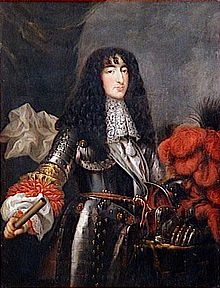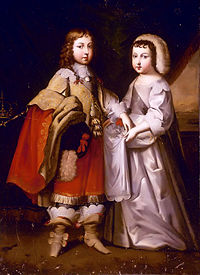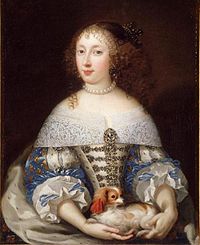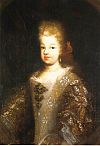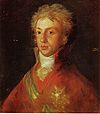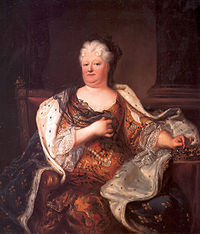- Descendants of Philippe I, Duke of Orléans
-
Philippe de France, Duke of Orléans was the brother of Louis XIV of France and the younger son of Louis XIII of France and Anne of Austria.
A Bourbon himself, he founded the third line of Dukes of Orléans descended patrilineally from France's kings. His heirs constituted the senior cadet branch of the royal dynasty until the French Revolution(other sons of French kings failed to produce sons who could inherit their positions at court until after the Bourbon Restoration in the 19th century). They include the second duke, who governed France during the minority of Louis XV in the Regency era; one French king, Louis Philippe; and the Orléanist pretenders to the throne of France still flourishing in the 21st century. Accumulation of the vast wealth which the Orléans possessed and used to influence both politics and court life until it was confiscated during the French Revolution, began with Philippe, a life-long beneficiary of his brother's largesse.
He is often referred to historically as Philippe d'Anjou until 1660, when he was granted the dukedom of Orléans, the traditional appanage conferred upon the second son of the French king whenever the title became available, as it did when Louis XIV's only paternal uncle, Gaston, Duke of Orléans, died. In 1661 Philippe also received the dukedoms of Valois and Chartres.[1] Following Philippe's victory in battle in 1671, Louis XIV added the dukedom of Nemours, the marquisates of Coucy and Folembray, and the countships of Dourdan and Romorantin.[2] As a son of a French king, Philippe ranked as a fils de France, and as the king's eldest brother, he was invariably referred to at court simply as Monsieur.
Contents
Youth
Philippe de France was born at the château de Saint-Germain-en-Laye, on 21 September 1640. At birth, he was titled Duke of Anjou. Philippe was the second and last child of his parents, Louis XIII and Anne of Austria, (his mother had suffered several miscarriages before the birth of her first son, the Dauphin Louis Dieudonné, in 1638).
At the death of Louis XIII in 1643, his elder brother succeeded to the throne as King Louis XIV. Philippe became the heir presumptive, and remained so for almost twenty years, until the birth of his nephew Louis de France, in 1661. From then he became second in line of succession to the throne for another 20 years, until the Dauphin's eldest son was born. Philippe was commonly known as le Petit Monsieur, to distinguish him from his uncle, Gaston, who as the only brother of the previous monarch was known as le Grand Monsieur.
Character
In order to discourage the type of tempestuous relationship that had developed between Louis XIII and his younger brother Gaston, Anne of Austria and Cardinal Mazarin made it a private policy to prevent Philippe from pursuing ambitions which might prompt rivalry with or defiance of the king. Aside from his appanage, he was given no meaningful financial freedom from the Crown.[3] Later, to his already rich holdings Philippe wanted to add the countship of Blois, with its château de Chambord, and the governorship of Languedoc, but both would be refused him by his brother.[3]
During his youth, his behavior was closely watched by his mother and her advisor. Mindful that Gaston's treasonous habits had not only been evoked by the Fronde, but by his secret elopement with a foreign princess which had left the royal brothers estranged for years, Philippe's inclination toward homosexuality was not discouraged. Reportedly, Cardinal Mazarin even arranged for the de-flowering of Philippe at the hands of his own nephew, Philip Julian Mancini.[4][5] Queen Anne discouraged Philippe from traditional manly pursuits such as soldiering and politics, and encouraged him to wear dresses, makeup, and to exhibit effeminate behaviour. As an adult, he continued to enjoy wearing feminine clothing and fragrances.
House of Orléans 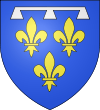
See descendants Marie Louise, Queen of Spain Philippe Charles, Duke of Valois Anne Marie, Queen of Sardinia Alexandre Louis, Duke of Valois Philippe, Duke of Orléans Élisabeth Charlotte, Duchess of Lorraine Even once married, he reportedly carried on open romantic affairs with German nobles, with no regard to either of his two wives.[6] Philippe's mignons, invariably younger, handsome men, would dominate contemporary and historical commentaries about his role at court. Among them one man stands out, Philip of Lorraine-Armagnac, the chevalier de Lorraine, who has been described as "insinuating, brutal and devoid of scruple". According to Dirk van der Cruysse, the chevalier
...was also the worst enemy of the latter's two wives. As greedy as a vulture, this cadet of the French branch of the House of Lorraine had, by the end of the 1650s, hooked Monsieur like a harpooned whale. The young prince loved him with a passion that worried Madame Henrietta and the court bishop, Cosnac, but it was plain to the King that, thanks to the attractive face and sharp mind of the good-looking cavalier, he would have his way with his brother.[7]
In January 1670, Philippe's wife had prevailed upon the King to imprison the chevalier, first near Lyon, then in the Mediterranean island-fortress of château d'If. Finally, he was banished to Rome. However, by February, the Duke of Orléans' protests and pleas persuaded the King to restore him to his brother's entourage.
Military career
Monsieur was not given significant responsibility. Despite this, he proved to be an exceptionally brave and competent commander in the field. He fought with distinction in the 1667 promenade militaire against Flanders during the War of Devolution (hastening back to his life at court, however, immediately after victory was assured).
Philippe resumed military command in 1672. In 1677, he won a great victory against William of Orange at the Battle of Cassel in northern France and tookSaint-Omer. Reportedly, Louis XIV was jealous of his brother's success and, as result, Philippe was never again given command of an army. However, he was publicly acknowledged by Louis for his achievements.
At court
Madame de Maintenon, the King's morganatic wife, despised by Monsieur almost as much as by his garrulous wife, Madame (the Princess Palatine "Liselotte", was determined that her former charges, the King's legitimised children by Madame de Montespan, would efface their bastardy by contracting dynastic marital alliances. To overcome Monsieur and Madame's revulsion upon the King's insistence on marrying the youngest of these legitimised "princesses", Françoise-Marie de Bourbon, to their son and heir, Philippe, Duke of Chartres in 1692, Louis enriched the bride with a dowry of two million livres and gave his brother the Palais Royal, which became the Paris residence of the Dukes of Orléans until 1793.
In 1693, Philippe's wealthy cousin, Anne Marie Louise, Duchess of Montpensier, la grande Mademoiselle died, and left him most of her wealth. This brought him the dukedoms of Montpensier, Châtellerault and Saint-Fargeau, as well as the princedom of Joinville, the marquisate of Mézières and the barony of Beaujolais.
Philippe also received an allowance for his expenses at court which, prudently invested, augmented his fortune.
Death
On the evening of 8 June 1701, Monsieur and the King had a terrible argument about the Duke of Chartres' neglect of his wife, in apparent response to never receiving the charges the King had promised him upon his marriage with Mademoiselle de Blois. Philippe pleaded his son's case with such vehemence that a footman felt obliged to enter the King's chamber to warn the royal brothers that their quarrel was being overheard by the entire court.
After dinner, Philippe went home to Saint-Cloud. That night, he suffered a stroke and fell into a coma. He died at his château de Saint-Cloud on 9 June 1701. The King's former mistress, Madame de Montespan, was said to have wept bitterly at the loss of her one remaining friend. His wife (whom he eventually befriended, though never loved) also mourned deeply, as did his granddaughter, the Duchess of Bourgogne, along with his brother, the King.
Philippe's Descendants
Issue by Henrietta 'Minette' of England
Henrietta Anne and Philippe : Relationship Background
On 31 March 1661, he married his first cousin, Princess Henrietta of England, daughter of King Charles I of England, in the chapel of the Palais-Royal in Paris. Both were grandchildren of Henry IV of France and Marie de' Medici. She was known at court as Madame , Henriette d'Angleterre (Henrietta of England) or affectionately as Minette.
Philippe and Henriette remained indifferent to one another[3] and went on to seek comfort from others. Philippe openly paraded his mignons in front of his wife and the whole court. Among them were Armand de Gramont, Count of Guiche, known for his arrogance and good looks, the marquis de Châtillon, and his first lover Philip Julian Mancini.[3] Meanwhile, Henriette proved to be very popular at court as a pretty, good-natured princess, much to Philippe's annoyance.
She soon attracted the attention of the King. In order to hide this attraction from the King's mother and wife, Henriette and Louis invented the story that he was constantly in Henriette's company in order to be close to one of her ladies-in-waiting, Louise de La Vallière. In time, Louis indeed fell in love with Louise and made her his mistress.
Reluctantly, and somewhat bitterly, Henriette stepped aside. She is said to have eventually taken one of her husband's earlier conquests, Armand de Gramont as a lover.[3] This caused all sorts of arguments at the Palais Royal, where the Orléans lived. Despite this marital dissension, several children were born of their union. However, Henriette, known for her fragile and delicate health, had four miscarriages in the space of five years.[8] By the time of the birth of Anne Marie, the couple was notorious for the frequency of their quarrels at court and at home in the Palais-Royal.[3]
By the time of the birth of Anne Marie, the couple was notorious for the frequency of their quarrels at court and at home in the Palais-Royal.[3] After joining his brother Louis, the Queen, Mademoiselle , Madame de Montespan and Louise de La Vallière at a military campaign in northern France, the ducal couple returned to Saint-Cloud. It was there that the Duchess died at the age of twenty-six.
The death of the duchess on 30 June 1670 was popularly attributed to poison. The main suspects of this alleged crime were the Duke himself and the Chevalier de Lorraine. Although the duke may not have been involved, the enmity between Minette and the Chevalier de Lorraine was not a hidden truth. After an autopsy was performed, it was reported that Henrietta-Anne had died of peritonitis caused by an ulcer. During his marriage to Henriette-Anne, Philippe was heard to have said that he had loved her for fifteen days[citation needed].
Children
# Name of Descendant Portrait Birth Death Relations Marriages Issue 1 Marie Louise d'Orléans 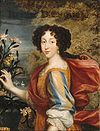
March 26, 1662 February 12, 1689 Daughter of Philippe de France and Henrietta of England Married to
Charles II of SpainNo Issue 2 Anne Marie d'Orléans 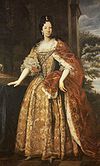
August 27, 1669 August 26, 1728 Daughter of Philippe de France and Henrietta of England Married to
Victor Amadeus II of Sardinia3 children, 2 daughters, 1 son Grandchildren
# Name of Descendant Portrait Birth Death Relations Marriage Issue 1 Maria Adelaide of Savoy 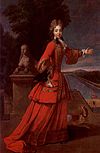
December 6, 1685 February 12, 1712 Daughter of Anne Marie d'Orléans
and Victor Amadeus II of Sardinia
Granddaughter of Philippe de France
and Henrietta of EnglandMarried to
Louis, Dauphin of France1 child, 1 son 2 Maria Luisa Gabriella of Savoy August 17, 1688 February 14, 1714 Daughter of Anne Marie d'Orléans
and Victor Amadeus II of Sardinia
Granddaughter of Philippe de France
and Henrietta of EnglandMarried to
Philip V of Spain2 Children, 2 sons 3 Charles Emmanuel III of Sardinia 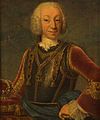
April 27, 1701 February 20, 1773 Son of Anne Marie d'Orléans
and Victor Amadeus II of Sardinia
Grandson of Philippe de France
and Henrietta of EnglandMarried
(1) Anne Christine Louise of Bavaria
(2) Polyxena Christina of Hesse-Rotenburg
(3) Elisabeth Therese of Lorraine4 children, 2 sons, 2 daughters Great-grandchildren
# Name of Descendant Portrait /Coat of Arms Birth Death Relations Marriages Issue 1 Louis XV of France 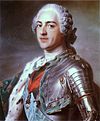
15 February 1710 10 May 1774 Son of Louis, duc de Bourgogne
and Marie-Adélaïde of Savoy
Grandson of Anne Marie d'Orléans
and Victor Amadeus II of Sardinia
Great-Grandson of Philippe de France
and Henrietta of EnglandMarried
Marie Leszczyńska7 Children, 6 daughters, 1 son 2 Louis I of Spain 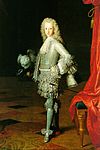
August 25, 1707 August 31, 1724 Son of Maria Louisa of Savoy
and Philip V of Spain
Grandson of Anne Marie d'Orléans
and Victor Amadeus II of Sardinia
Great-Grandson of Philippe de France
and Henrietta of EnglandMarried
Louise Élisabeth d'OrléansNo Issue 3 Ferdinand VI of Spain 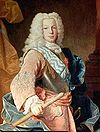
September 23, 1713 August 10, 1759 Son of Maria Louisa of Savoy
and Philip V of Spain
Grandson of Anne Marie d'Orléans
and Victor Amadeus II of Sardinia
Great-Grandson of Philippe de France
and Henrietta of EnglandMarried
Barbara of PortugalNo Issue 4 Victor Amadeus III of Savoy 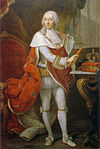
June 26, 1726 October 16, 1796 Son of Charles Emmanuel III of Sardinia
and Polyxena Christina of Hesse-Rotenburg
Grandson of Anne Marie d'Orléans
and Victor Amadeus II of Sardinia
Great-Grandson of Philippe de France
and Henrietta of EnglandMarried
Maria Antonietta of Spain9 children, 5 sons , 4 daughters 5 Eleonora Maria Teresa of Savoy 
1728 1781 Daughter of Charles Emmanuel III of Sardinia
and Polyxena Christina of Hesse-Rotenburg
Granddaughter of Anne Marie d'Orléans
and Victor Amadeus II of Sardinia
Great-Granddaughter of Philippe de France
and Henrietta of Englandunmarried No issue 6 Maria Luisa Gabriella of Savoy 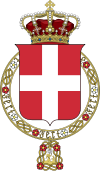
1729 1767 Daughter of Charles Emmanuel III of Sardinia
and Polyxena Christina of Hesse-Rotenburg
Granddaughter of Anne Marie d'Orléans
and Victor Amadeus II of Sardinia
Great-Granddaughter of 'Philippe de France
and Henrietta of Englandunmarried,
a nunNo issue 7 Maria Felicita 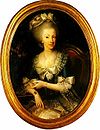
1730 1801 Daughter of Charles Emmanuel III of Sardinia
and Polyxena Christina of Hesse-Rotenburg
Granddaughter of Anne Marie d'Orléans
and Victor Amadeus II of Sardinia
Great-Granddaughter of Philippe de France
and Henrietta of Englandunmarried No issue 8 Benedetto Maria Maurizio of Savoy
(Duke of Chablais
and Marchese of Ivrea)
1741 1808 Son of Charles Emmanuel III of Sardinia
and Elisabeth Teresa of Lorraine
Grandson of Anne Marie d'Orléans
and Victor Amadeus II of Sardinia
Great-Grandson of Philippe de France
and Henrietta of EnglandMarried
his niece Maria AnaNo issue Further Descent
# Name of Descendant Portrait Birth Death Relations Marriages Issue 1 Louise Élisabeth, Duchess of Parma 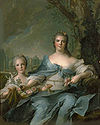
August 14, 1727 December 6, 1759 Daughter of Louis XV of France
and Maria LeszczyńskaMarried to
Philip, Duke of Parma3 children, 2 daughters, 1 son 2 Isabella of Parma 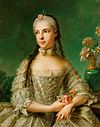
31 December 1741 November 27, 1763 Daughter of Louise Élisabeth, Duchess of Parma
and Philip, Duke of ParmaMarried to
Joseph II, Holy Roman Emperor1 child, 1 daughter 3 Maria Theresia 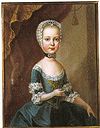
March 20, 1762 January 23, 1770 Daughter of Isabella of Parma and
Joseph II, Holy Roman EmperorUnmarried No Issue 4 Ferdinand, Duke of Parma 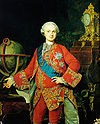
January 20, 1751 October 9, 1802 Son of Louise Élisabeth, Duchess of Parma
and Philip, Duke of ParmaMarried
Archduchess Maria Amalia of Austria4 children, 1 son, 3 daughters 5 Princess Caroline of Parma 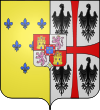
November 22, 1770 March 1, 1804 Daughter of Ferdinand, Duke of Parma
and Archduchess Maria Amalia of Austria.Married
Prince Maximilian of Saxony7 children, 3 sons, 4 daughters 6 Louis of Etruria 5 July 1773 27 May 1803 Son of Ferdinand, Duke of Parma
and Archduchess Maria Amalia of Austria.Married
Maria Louisa, Duchess of Lucca2 children, 1 son, 1 daughter 7 Maria Antonia 
28 November 1774 20 February 1841 Daughter of Ferdinand, Duke of Parma
and Archduchess Marie Amalie of Austria.Unmarried,
a nunNo Issue 8 Charlotte of Parma 
September 7, 1777 1812 Daughter of Ferdinand, Duke of Parma
and Archduchess Maria Amalia of Austria.Unmarried,
a nunNo Issue 9 Maria Luisa of Parma 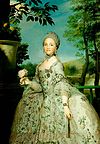
December 9, 1751 January 2, 1819 Daughter of Louise Élisabeth, Duchess of Parma
and Philip, Duke of ParmaMarried to
Charles IV of Spain7 children, 3 sons, 4 daughters 10 Carlota Joaquina of Spain 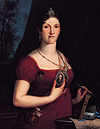
25 April 1775 7 January 1830 Daughter of Maria Luisa of Parma
and Charles IV of SpainMarried to
John VI of Portugal8 children, 2 sons, 6 daughters 11 Maria Amalia 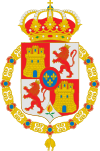
January 9, 1779 July 22, 1798 Daughter of Maria Luisa of Parma
and Charles IV of SpainUnmarried No Issue 12 Maria Louisa 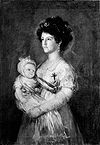
July 6, 1782 March 13, 1824 Daughter of Maria Luisa of Parma
and Charles IV of SpainMarried to
Louis of Etruria2 children, 1 son, 1 daughter 13 Ferdinand VII of Spain 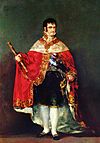
October 14, 1784 September 29, 1833 Son of Maria Luisa of Parma
and Charles IV of SpainMarried
(1) Maria Antonia of Naples
(2) Maria Isabel of Portugal
(3) Maria Josepha of Saxony
(4) Maria Christina of the Two Sicilies2 children, 2 daughters 14 Charles, Count of Molina 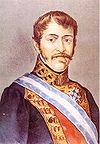
March 29, 1788 March 10, 1855 Son of Maria Luisa of Parma
and Charles IV of SpainMarried
(1) Maria Francisca of Portugal
(2) Teresa, Princess of Beira2 children, 2 sons 15 Maria Isabella of Spain 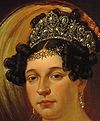
June 6, 1789 September 13, 1848 Daughter of Maria Luisa of Parma
and Charles IV of SpainMarried to
Francis I of the Two Sicilies12 children, 6 sons, 6 daughters 16 Infante Francisco de Paula of Spain 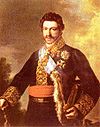
10 March 1794 13 August 1865 Son of Maria Luisa of Parma
and Charles IV of SpainMarried
Princess Luisa Carlotta of the Two Sicilies8 children, 4 sons, 4 daughters Issue by Elizabeth 'Liselotte' Charlotte
Elizabeth Charlotte and Philippe : Relationship Background
Philippe's confidante, Anna Gonzaga, Princess Palatine, arranged his second marriage to her husband's niece, Elisabeth Charlotte, the nineteen year old daughter of Charles I Louis, Elector Palatine. Upon her arrival in France, "Liselotte" converted to Roman Catholicism, before the marriage ceremony.
The couple was married by proxy, in the cathedral Saint-Étienne at Metz, on 16 November 1671. The maréchal du Plessis-Praslin represented the Duke of Orléans. Philippe and Liselotte first met on the road between the towns of Châlons and Bellay.[9]
Whereas Philippe's first wife had been known for beauty, charm and wit, Liselotte lacked those graces. Some said that this lack explained why she fared better with her husband (who personally took charge of her toilette for public occasions[clarification needed]) than did his first wife. She bore him his only surviving son.
Liselotte also became known for her brusque candor, upright character, lack of vanity, and prolific foreign correspondence about the daily routine and frequent scandals of Versailles. Her letters record how willingly she gave up sharing Philippe's bed at his request after their children's births, and how unwillingly she endured the presence of his minions in their household, which caused the couple to quarrel.
But she frequently acknowledged that Philippe's treatment of her was less offensive than the impertinences his entourage indulged in at her expense, and the lack of protection he afforded her and their children against the hostile intrigues she believed were directed at her by spiteful courtiers, especially Madame de Maintenon.
Children
# Name of Descendant Portrait Birth Death Relations Marriages Issue 1 Philippe II, Duke of Orléans 
August 2, 1674 December 2, 1723 Son of Philippe d'Orléans and Elizabeth Charlotte of Bavaria Married to
Françoise-Marie de Bourbon7 children: 1 son, 6 daughters 2 Élisabeth Charlotte, Princess of Commercy 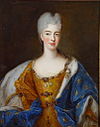
September 13, 1676 December 23, 1744 Daughter of Philippe d'Orléans and Elizabeth Charlotte of Bavaria Married to
Leopold, Duke of Lorraine5 children: 3 sons, 2 daughters Grandchildren
# Name of Descendant Portrait Birth Death Relations Marriages Issue 1 Marie Louise Élisabeth d'Orléans 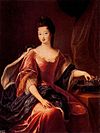
August 20, 1695 July 21, 1719 Daughter of Philippe d'Orléans and Françoise-Marie de Bourbon Married to
Charles de France, duc de BerryNo issue 2 Louise Adélaïde, Abbess of Chelles 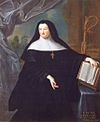
August 13, 1698 February 10, 1743 Daughter of Philippe d'Orléans and Françoise-Marie de Bourbon Unmarried, a nun No Issue See also
- House of Orléans
- Descendants of Louis XIV of France
- Descendants of Henry IV of France
- Descendants of Philip V of Spain
References
- ^ Anthony, Louisa. Footsteps to history, being an epitome of the histories of England and France, from the fifth to the nineteenth century, p.195. Published 1852.
- ^ Lane, William Coolidge. "A.L.A. Portrait Index: Index to Portraits Contained in Printed Books", P1099. Published 1906, B. Franklin.
- ^ a b c d e f g Barker, Nancy Nichols, Brother to the Sun king: Philippe, Duke of Orléans, Johns Hopkins University Press, 1989.
- ^ Erlanger, Philippe, Louis XIV, translated from the French by Stephen Cox, Praeger Publishers, New York, 1970, p. 75 (footnote).
- ^ Dufresne, Claude,Les Orléans, CRITERION, Paris, 1991, p. 33 (French).
- ^ P. Salazar in Who's who in Gay and Lesbian History, London, 1990 (Ed Wotherspoon and Aldrich).
- ^ Van der Cruysse, Dirk (1988) (in French). Madame Palatine, princesse européenne. Fayard. pp. 165. ISBN 2213022003.
- ^ Royal Genealogy, Information on Stuart, Henrietta Anne
- ^ Arvède Barine, "Madame, Mère du Régent", in: Revue des deux mondes, LXXVIIe Année, Cinquième période, Tome Quarantième, Paris, 1907, p. 814.
Categories:- Descendants of individuals
- House of Bourbon (France)
- House of Bourbon
- House of Orléans
Wikimedia Foundation. 2010.

